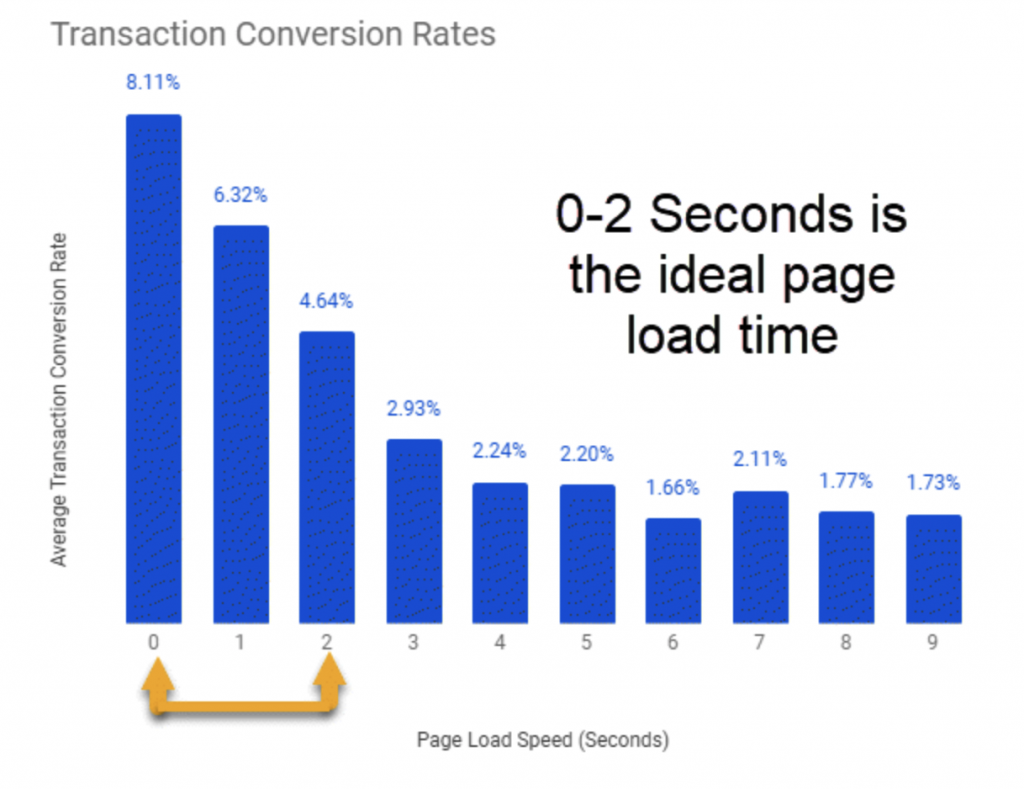What if you could improve organic rankings, reduce your cost per acquisition, and grow conversion rates across every marketing channel by changing just one part of the Digital Marketing Stack? It turns out you can, and you’re leaving money on the table by ignoring page speed optimization.
Page speed impacts every on-site strategy, tactic, and metric that marketers are focused on today, and the infrastructure of your site is foundational to your marketing stack. Every user interacting with your website is positively or negatively impacted by how well your website performs. And how well your site performs is only going to become increasingly important if you’ve been paying attention to the shifts Google’s made on both paid and organic sides over the past few years.
Improving page speed increases your ability to drive more traffic to your website.
Improving page speed drives engagement and conversion rates higher on your website.
Page speed matters. Page speed matters a lot. Not sure? Let’s dive in a little deeper.
How Site Speed Impacts Organic Rankings
Google announced that in May 2021, they will introduce Core Web Vitals into its algorithm when assessing websites for organic search rankings. Core Web Vitals is Google’s experience signal and is an effort to place an importance on website usability and user experience using several predefined metrics.
The Core Web Vitals aren’t new; they are just a new way of measuring classic site performance. Oh, and Google formally said they are important so now everyone cares about them.
For marketers working on sites that are lagging when it comes to speed, you could fall further behind after the May update. If the effort Google puts into this update is an indicator of importance, Core Web Vitals and overall page speed will be more important than the small ranking factor we’ve seen in the past.
A faster site won’t just help boost Google’s Core Web Vitals; it will indirectly improve rankings on any search engine that factors in user experience. If fewer users are bouncing back to the search results after clicking on your result due to speed, search engines will see that users tend to like your site more than others and rank your accordingly.
How Site Speed Impacts Paid Media Performance
Site speed has directly impacted performance on the paid media side for years.
Looking specifically at what’s measured to produce Google’s Quality Score, Landing page experience is a direct contributor. Among a handful of steps to improve your landing page experience, Google specifically outlines decreasing your landing page load time and making your site faster.
As Google Ads’ Quality Scores improve, marketers can expect to see:
- Higher search impression share
- Higher clickthrough rates
- Lower cost per click average
- High conversion rates
Those outcomes are what marketers commonly aim for, and site speed optimization is one of the ways to get there.
Site Speed Impacts Conversation Rates
Back in 2014, we published a study showing the impact that page load time had on revenue-driven per pageview. The findings were clear. A faster page load time (ideally, less than one second) resulted in a significant increase in dollars per pageview.

Five years later, we updated the study and the results are even more clear: the faster the site, the better conversion rates.

That’s our research on site speed and conversion performance. There’s a ton more out there too. Here’s a solid look at what Cloudflare found when comparing website performance and conversion rates.
It’s Time to Start Leveraging Site Speed Optimization
Marketers are often obsessed with traffic acquisition to drive their primary conversion goals. Better rankings, more organic sessions, more conversions. Lower CPCs, more paid sessions, more conversions. Yes, sometimes, but improving site speed is a clear and proven way to sharply increase the conversion metrics that matter most with the traffic volume you already have today. As competition grows for organic rankings and average CPCs continue to steadily increase, one way to fuel your conversion funnel is to make the most of the traffic you’re already driving.
As we’ve shown above, site speed optimization enables marketers to drive more traffic and convert that traffic more effectively once on-site.
Improving page speed increases your ability to drive more traffic to your website.
Improving page speed drives engagement and conversion rates higher on your website.









